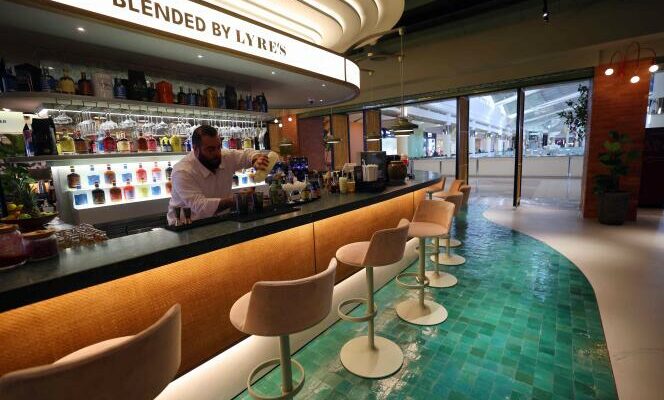LETTER FROM RIYADH
Sipping a mojito by the Red Sea or in a grand hotel in Riyadh is not yet on the agenda for Saudis and foreign tourists. But the kingdom is preparing to give the first blow to the policy of strict alcohol prohibition applied since 1952. In a few weeks, the first liquor store managed by the Saudi authorities is due to open its doors in the diplomatic district of the capital. Sales will be limited to non-Muslim diplomats, who will have to register via a mobile application and satisfy the quotas imposed on them. Mini revolution or simple change of facade? The debate rages within the conservative kingdom.
Officially, this measure aims to introduce “a new regulatory framework to combat illicit trade in alcoholic products and products received by diplomatic missions”, justified the Saudi authorities on Wednesday January 24. Alcohol flows freely at receptions organized by foreign chancelleries, which are authorized to import it, without quota limits, through the diplomatic bag. According to the Saudi authorities, part of these imports would supply the black market.
For several hundred dollars, Saudis and expatriates can purchase a bottle of whiskey through “dealers”. Prices are prohibitive for the majority of the 32 million Saudis and foreign workers who live in the kingdom. But they remain accessible to expatriates and to a Saudi elite who would like to allow themselves this distance out of sight, particularly behind the walls of the “compounds”, these closed residential neighborhoods reserved mainly for foreigners. There is also poor quality alcohol secretly manufactured in the kingdom, which often causes cases of poisoning and even deaths, highlights the Arabic-language daily Al-Arab.
Diplomatic incident
Many wine and spirits lovers prefer to treat themselves to a weekend trip to Bahrain or Dubai, where alcohol is permitted. The sanctions provided for by Saudi law in the event of consumption or possession of alcohol are in fact very severe: prison sentences, public flogging and even expulsion for foreigners. This strict prohibition of alcohol has perverse effects, notes the daily Al-Arab, particularly on Saudi youth, open to the world thanks to the Internet and travel. Unable to obtain alcoholic beverages, many young people resort to narcotic substances, which are easier to smuggle into the kingdom, despite the severity of the penalties provided for by law, which can go as far as the death penalty for resellers.
You have 55% of this article left to read. The rest is reserved for subscribers.
